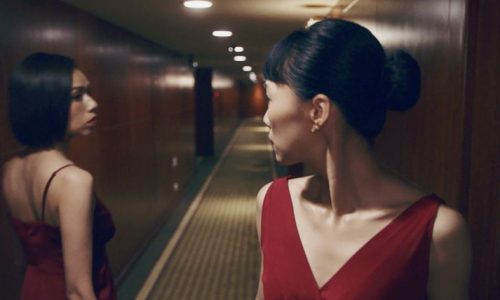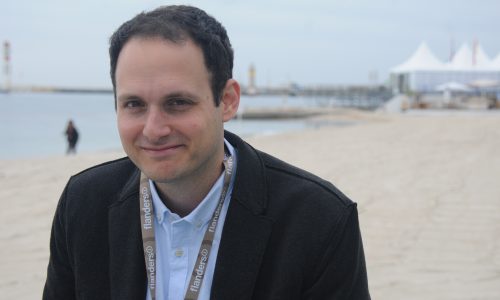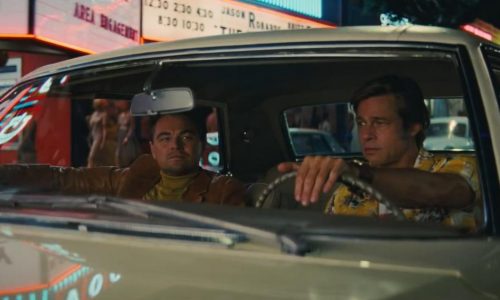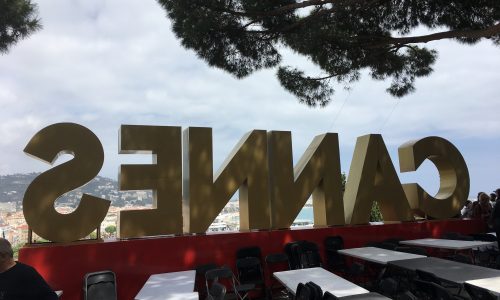There’s a lot of pressure on your final day in Cannes to make the most of your time, so there was no prospect of a lie-in. It was straight down to the 1100-seater Debussy cinema to start the day with a film, in the Un Certain Regard strand, from the Burmese director known as Midi Z.

His film Nina Wu, set and shot in Taiwan, tells the story of the eponymous aspiring actress, who finds out only after her first big film is selected for a prestigious festival how she secured the role – without giving too much away, the film clearly sees itself as an expose of the kind of atmosphere Harvey Weinstein created – or at least propagated – in Hollywood and a reflection of the fact that the kind of behaviour alleged against the disgraced movie mogul has been similarly evident in the Far East.
Both stylish and stylised, the film – co-written by the director and the lead actress Wu Ke-Xi – has an important message, but the narrative is confused and the star comes across as somewhat aloof and fails to engender enough sympathy earlier in the story for us to be fully on board when the truth is revealed and it suffers the peculiar irony of including scenes that humiliate its actors, while potentially titillating some in the audience, despite the fact that the film itself is – rightly – lambasting the kind of behaviour on display.

With another film in the bag, I popped back to the Village International – the collection of beach-side national pavilions – which, with proceedings now into their second week, was noticeably thinning out. At the UK Film Centre, I met up with the Israel writer and director Don Barak, who’s spent the week promoting a number of projects that he’s hoping to finance. Chief among them is his script for a paranoia thriller called The Foreign Agent, about an Israeli intelligence officer, in hiding in Paris, who’s asked to interrogate a terrorism suspect but finds himself accused of complicity. “Professionally, Cannes has been extremely gratifying,” he told me, as he described how many producers were relieved to be discussing an original idea, rather than an adaptation. For him, the most positive experience about the market was that you start to like producers and financiers as people, as you meet them in a more relaxed setting than you otherwise might.
After having missed yesterday’s press screening of Quentin Tarantino’s Once Upon A Time… In Hollywood, I was determined to catch it at today’s lunchtime screening, but frustratingly, this clashed with both the press conference for the film and the lunch, put on for journalists, by the Mayor of Cannes in the courtyard of the hill-top castle, overlooking the harbour, the Palais and the Croisette beyond.
But the idea of going to the Cannes Film Festival and missing the film that everyone’s talking about because I wanted to have lunch courtesy of the mayor wouldn’t fly – not least because I’d wasted two hours of yesterday trying to see it. With so many people hoping to get into the 2300-seater Lumiere theatre to see it, the scene outside was chaotic. There were different coloured press badges jostling for position in their own queues, as festival-goers with different colour tickets were similarly waiting in their designated lines, with queues running alongside each other and often intersecting, causing consternation when one was moving and another was not.

As the film opens, Leonardo DiCaprio is introduced as a 1950s TV star, famed for playing a cowboy, while Brad Pitt is his stunt-man. Then we jump to the late 1960s and DiCaprio’s career hasn’t quite gone the way he’d hoped – he no longer needs a stunt double but Pitt is still on hand as his friend and assistant. Tarantino’s sprawling film follows the pair as DiCaprio goes from job to job and Pitt passes the time before picking him up after work. On the way, we meet a bunch of eccentric hippies and a budding young actress, Sharon Tate, played by Margot Robbie. Anyone who knows anything about Hollywood history might, at this point, start trying to join the dots, but in an explosive finale – that takes far too long to get to – Tarantino uses a narrative technique last displayed in his Second World War thriller Inglourious Basterds, of putting his own twist on historical events. The denouement is essential viewing and fits neatly into Tarantino’s oeuvre, but the journey there feels somewhat stretched and would’ve been stronger had it focused more on Pitt’s character – by far the most interesting and entertaining and the one with the most engaging story.

The credits began to roll at about 2.40, more than an hour and a half after the Mayor’s lunch started, but with no time for any more film-related activity before returning to my apartment to pack and leave town, there was nothing to lose by heading up the hill to check out the castle-courtyard. Sure enough, as I marched up the hill, I passed dozens of journalists on their way back down, and by the time I arrived at the venue, most of the tables were empty and all of the food, but for some bread and a handful of desserts, was gone. But bread and dessert was fine for me – especially since there was still plenty of wine around. This was my last event of Cannes 2019 and even if I missed some of the finest cuisine Cannes has to offer, I was able to bring my trip to a close with a stick or two or fresh French French bread, some typical provencal tarts and a glass of local wine, overlooking the craziness of the festival below from the relative calm of the hilltop.
